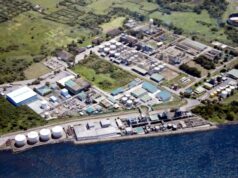THE petroleum exploration industry needs to retain incentives that the tax reform law may seek to eliminate in order to encourage risk taking, and added that removing these perks will stifle investment.
“Nobody is investing now, nobody is exploring now, nobody is looking for the next Malampaya and if you ask them, it’s all because of the instability of government policies,” said Rufino B. Bomasang, chairman of the Philippine Petroleum Association, in an interview on Tuesday.
“No one is interested. Foreign companies are not coming in,” he added.
He said the current incentive system works, and its elimination goes against the direction taken by regional neighbors who have been overhauling their rules to attract more foreign direct investment (FDI).
He was referring to the service contract scheme, which was introduced with the issuance of Presidential Decree (PD) 87 in the 1970s at the onset of the first global oil crisis in 1972, he said. At that time, the Philippines was fully dependent on imported oil.
Mr. Bomasang said PD 87 was patterned on the production-sharing system in Indonesia and other countries. The scheme was found to be successful for those that wanted to assert ownership and control of their petroleum resources while attracting capital and technological know-how, he added.
He said PD 87 stayed intact under succeeding administrations, especially after the validity and effectiveness of petroleum service contracts were reaffirmed in the 1987 Constitution through Financial and Technical Assistance Agreements (FTAA) that allowed up to 100% foreign participation.
In a speech delivered at the Fourth Joint Economic Briefing on Tuesday, Mr. Bomasang described the system as having succeeded in attracting technically and financially qualified companies, while eliminating speculators.
“From 1973 to 1987, 134 wells, mostly offshore, were drilled, all based on a lot more adequate sub-surface information, especially from the extensive seismic surveys. Furthermore, most wells were drilled beyond 2,000 meters, unlike previous wells, which were all less than 1,000 meters in depth,” he told participants of the conference that focused on foreign direct investment in the Philippines.
Mr. Bomasang said PD 87 offers attractive financial incentives, including tax-free importation of equipment and supplies, exemption from all taxes except income tax, and income tax assumption — or the payment of income tax out of the government’s share. It also provides for accelerated depreciation, free-market determination of crude oil prices, and easy repatriation of investments and profits.
With the risks it takes on, the service contractor is entitled to full recovery of capital and operating costs and a service fee of 40% of the net proceeds. For the government, the share is at least 60% of the net proceeds.
The recoverable operating costs are also capped at 70% of gross proceeds in a year. The government is assured of its share from the start of commercial operations, whether or not the company is making money.
“Unfortunately, in the last four to five years, petroleum exploration in the Philippines has practically stopped with no major foreign oil and gas company coming in,” Mr. Bomasang said, pointing to the perceived instability of government policy.
He cited the Commission on Audit (CoA) ruling against the government’s income tax assumption of the Malampaya gas-to-power project that provides a stable supply of energy for a number of power plants in Luzon.
“And now the proposed TRAIN (Tax Reform for Acceleration and Inclusion) II, which seeks to remove most of the incentives under PD 87,” Mr. Bomasang said.
He said considering the “importance and urgency of finding indigenous petroleum and given the current lack of active exploration activities due to apparent policy instability, this is certainly not the time to remove the incentives for the upstream petroleum industry.”
“This is a very high-risk industry which is different from all others, but of vital and strategic importance to national energy security. It definitely needs these incentives more than ever before,” he said.
Mr. Bomasang said on behalf of the Philippine petroleum association he is suggesting that PD 87 be excluded altogether from the second tranche of the TRAIN law.
“Excluding it and hopefully a favorable resolution of the CoA case will definitely result in important strategic and economic benefits for the country,” he said. — Victor V. Saulon



